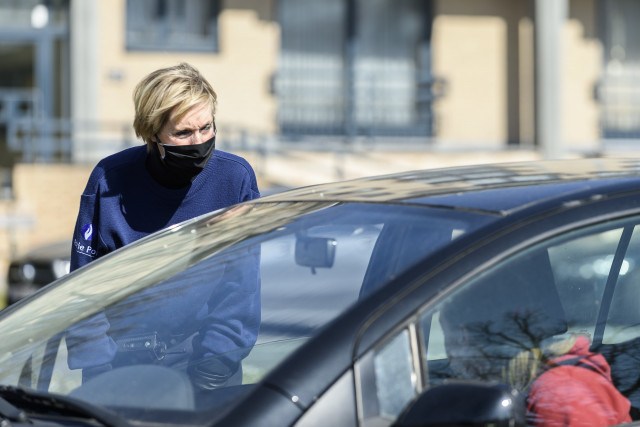More than half of people who report having symptoms linked to the new coronavirus (Covid-19) do not wear protective gear in public, a new survey showed.
In the latest round of a weekly survey on people's habits amid the coronavirus pandemic, researchers found that 57% of people with two or more symptoms went out without protection, out of a total of 170,000 respondents.
Out of the total respondents, 11% said they had at least one symptom of Covid-19, either a dry cough, a rapid onset of a high fever or shortness of breath. Only 4% of people with symptoms used protection when going in public, a face mask in the majority of cases.
Related News
- Coronavirus: Belgium's death toll tops 6,000
- Coronavirus: Flemish companies 'ready' to get back to business
- Coronavirus: Flemish mayors push for clarity on use of face masks
The use of face masks or gloves in public is not part of Belgium's official recommendations to the public, which favours respecting social-distancing guidelines as a way of preventing contact with the virus.
The survey results come as a growing number of mayors, in Brussels and Flanders, look to federal or regional leaders for clearer guidelines on the use of protective gear in public.
The results of the sixth week of the study also showed that a growing number of people had someone in their immediate environment who had been affected by the virus.
"Almost half of the participants know someone who has been seriously ill, 15% know someone who has been hospitalised and 9% know someone who has died (figures overlap, of course)," the researchers wrote.
Led jointly by the University of Antwerp, the University of Hasselt and KU Leuven university, the survey was launched in mid-March and has been carried out every Tuesday since then.
The survey aims to study people's responses to the measures imposed to curb the spread of the coronavirus and their evolution over time, in an effort give experts elements to better understand the virus' spread in the country.
Since they started polling residents, the researchers said they noticed a sort of fatigue related to the pandemic, citing a lower number of participants but also a rising perception (44%) that too much attention was given to the virus by the media.
Gabriela Galindo
The Brussels Times

